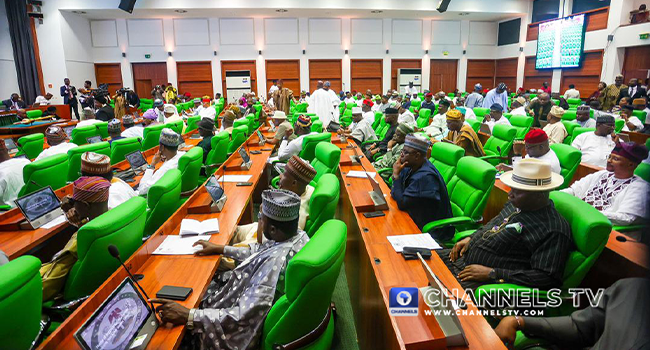382
By Tracy Moses
The House of Representatives has called for a probe into the utilisation of over $4.6 billion in international health grants received by Nigeria between 2021 and 2025 from the Global Fund and the United States Agency for International Development (USAID). The funds were meant to combat major public health concerns such as HIV/AIDS, tuberculosis (TB), malaria, and polio, as well as to strengthen the country’s overall health system.
This decision followed the adoption of a motion brought to the House on Tuesday by Hon. Amobi Godwin Ogah, who raised concerns over the lack of transparency and poor accountability in the administration of international health aid, despite the country’s continued struggle with preventable diseases.
Recall that or decades, Nigeria has been a major beneficiary of global health interventions aimed at reducing the burden of infectious diseases. The Global Fund to Fight AIDS, Tuberculosis, and Malaria, founded in 2002, has played a key role in mobilizing global resources to support developing nations, particularly in sub-Saharan Africa. Likewise, USAID and the U.S. President’s Emergency Plan for AIDS Relief (PEPFAR) have invested heavily in Nigeria’s healthcare sector, providing both financial and technical assistance.
However, Hon. Ogah lamented that despite these consistent inflows of donor support, Nigeria remains one of the countries with the highest rates of malaria, HIV/AIDS, and TB globally. He questioned the impact of these interventions, emphasizing the need for stronger oversight and performance monitoring.
According to Ogah, Nigeria received about $1.8 billion from the Global Fund between 2021 and 2024, primarily to enhance disease control measures and strengthen the Resilient and Sustainable Systems for Health (RSSH) initiative. He added that the Country Coordinating Mechanism (CCM–Nigeria) serves as the body responsible for implementing Global Fund programmes, while the Federal Ministry of Health and Social Welfare manages USAID-funded health interventions.
The lawmaker also disclosed that USAID provided more than $2.8 billion to Nigeria within the same period to support programmes targeting HIV/AIDS, TB, malaria, and other community health initiatives. Additionally, he noted that the PEPFAR programme alone has invested over $6 billion in Nigeria’s HIV/AIDS response since its inception, yet the country continues to record alarming public health statistics.
Ogah cited recent figures showing that Nigeria recorded 51,000 AIDS-related deaths in 2023, including 15,000 children aged 0–14, making it the third-highest globally. He further noted that the nation bears 26.6 percent of the world’s malaria cases and 31 percent of global malaria deaths, while ranking first in Africa and sixth worldwide for tuberculosis, accounting for 4.6 percent of the global TB burden.
“These disturbing realities show that despite billions of dollars in donor support, Nigeria still grapples with preventable diseases. There’s an urgent need to ensure that funds are properly utilized and that measurable results are achieved,” he stressed.
Following deliberations, the House mandated its Committee on HIV/AIDS, Tuberculosis, and Malaria Control to investigate the utilization and management of all funds received from the Global Fund and USAID from 2021 to 2025. The Committee is to report back within four weeks for further legislative action.
Lawmakers emphasized that effective oversight of international health grants is essential to achieving the United Nations Sustainable Development Goal (SDG) 2030 target of ending the epidemics of HIV, TB, and malaria.
The resolution reflects the House’s growing resolve to strengthen accountability in the health sector and ensure that Nigeria’s international partnerships yield tangible improvements in public health outcomes.



